#edmund hunt
Text

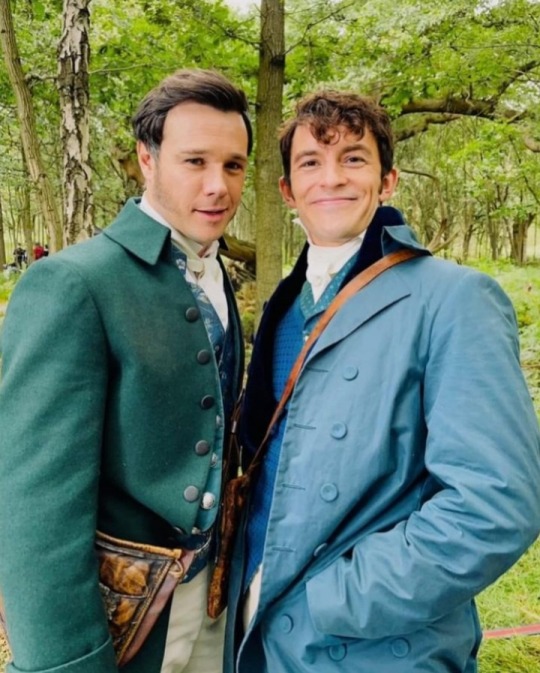




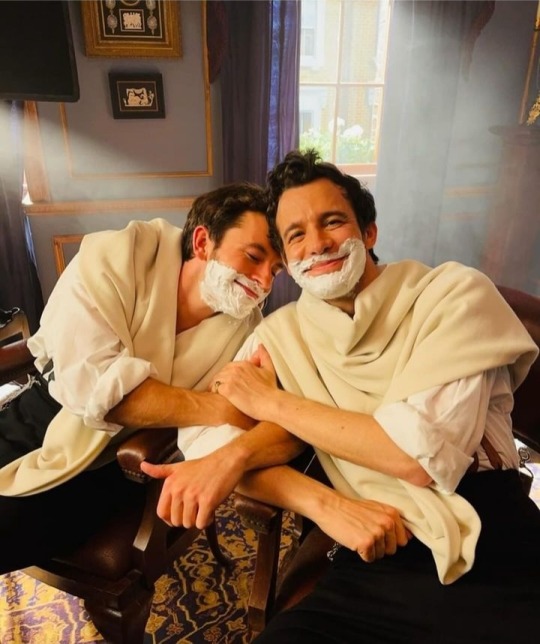

BRIDGERTON SEASON 2 (2022)
#bridgerton#bridgerton season 2#costume drama#period drama#bridgertonedit#kate sharma#anthony bridgerton#lady violet bridgerton#edmund bridgerton#eloise bridgerton#benedict bridgerton#colin bridgerton#hyacinth bridgerton#gregory bridgerton#cressida cowper#lady cowper#simone ashley#jonathan bailey#ruth gemmell#rupert evans#claudia jessie#luke thompson#luke newton#florence hunt#will tilston#jessica madsen#joanna bobin
205 notes
·
View notes
Text
EXCLUSIVE: Oscar-winning producers See-Saw Films (The King’s Speech) are gearing up on Tenzing, about the inspirational life of Sherpa Tenzing Norgay and his summit of Mount Everest in 1953 alongside fellow outsider New Zealander Edmund Hillary.
A search is currently underway to cast the lead role of Tenzing Norgay who will star alongside BAFTA-nominated Tom Hiddleston (Loki) as Sir Edmund Hillary, and Oscar winner Willem Dafoe (Poor Things) as the English expedition leader, Colonel John Hunt.
Tenzing comes from filmmaker Jennifer Peedom who has the exclusive rights to tell Tenzing’s story via his family and has a close relationship with the Sherpa community after making acclaimed documentary Sherpa.
Script comes from Oscar-nominated Luke Davies (Lion) and producers are Liz Watts, Emile Sherman and Iain Canning for See-Saw Films, alongside Jennifer Peedom and Luke Davies. Executive producers are Simon Gillis, David Michôd and Norbu Tenzing.
Tibetan born Tenzing Norgay, alongside New Zealand mountaineer Edmund Hillary, both outsiders on a British Expedition, defied insurmountable odds to achieve what was once thought impossible, reaching the summit of the world’s tallest mountain, Mount Everest. After six previous attempts, Tenzing risked everything for one final venture. He had to navigate treacherous politics and perilous weather as he embarked on the most significant climb of his life. Through it all, he did so with humor, warmth, and generosity towards his fellow climbers, but also deep reverence and respect for the sacred Mother Goddess of his Mountain, Chomolungma.
This will be one of the hot projects at next week’s Cannes market where Rocket Science will be handling international sales in partnership with Cross City Films, See-Saw’s in-house sales arm. UTA Independent Film Group and Cross City Films are co-repping the U.S. sale. We understand filming is being lined up for spring 2025.
Peedom, known for her intimate portraits against epic landscapes, including documentaries Solo, Sherpa and Mountain, said: “I could not be more thrilled to be bringing Tenzing Norgay’s story to the screen. I’ve been working towards this film my whole career, and I’m incredibly grateful to Tenzing’s family for entrusting me with it. I am excited to work with See-Saw Films and our amazing cast to bring this story to life. Tom Hiddleston and Willem Dafoe are two of the most generous and talented actors in the business, so pairing them with our brilliant Himalayan cast is going to be electric. I have no doubt this film will resonate widely. We all have our own mountains to climb, and this film shows us what human beings are truly capable of.”
Producers Emile Sherman and Iain Canning added: “We are so excited to embark on this exhilarating ascent led by one of the most inspirational directors we’ve encountered, Jennifer Peedom. Her award-winning experience in the world of high-altitude filmmaking, alongside her unique relationship with the Sherpa community and her masterful storytelling skills make her the perfect director for this film.”
Norbu Tenzing, son of Tenzing Norgay, commented: “Jen is somebody who has earned the respect of our people, understands the community, and is deeply immersed in our culture. She’s a great human being and someone that we trust, and she has had a lifelong interest in the story of my father Tenzing Norgay. I am delighted that she has taken on this project and can’t wait for the world to see who my father was.”
Hiddleston is represented by UTA, Hamilton Hodell, and Johnson Shapiro Slewett & Kole. Willem Dafoe is represented by WME, The Artist Partnership, and Circle of Confusion.
116 notes
·
View notes
Text
I just spent my day doing research and mathematics to make sure the age gap between the characters in the fic I’m writing isn’t problematic.
how about y’all?
#I have come to the conclusion that it’s fine#yes it was casmund the narnia timelines are CONFUSING#and the movies are so vague about their ages you have to hunt for clues#and then I do certain time jump things in the fic that make the gap even smaller sooooo#it’s fine#narnia#casmund#my writing#caspian x edmund#prince caspian#edmund pevensie#edmund x caspian
130 notes
·
View notes
Text
Today has sure been a day for announcements!
Firstly that Tom is going to play Sir Edmund Hillary in a new film (which means he's going to be doing a New Zealand accent and I am so excited!!!)
They've announced two new films set in Middle Earth will be produced by Peter Jackson in Wellington, first one directed by Andy Serkis who will also be playing Gollum again.
And lastly, a sixth scale figure of Loki in his green outfit from the finale of season 2 of the series was announced by Hot Toys. This one seems to have a really good likeness to Tom.
So much goodnesssssssss! 💚💛💚
#tom hiddleston#lotr#loki#hot toys#wellington#peter jackson#andy serkis#new zealand#sir edmund hillary#tenzing#the hunt for gollum
16 notes
·
View notes
Text
And next moment they all came tumbling out of a wardrobe door into the empty room, and they were no longer Kings and Queens in their hunting array but just Peter, Susan, Edmund and Lucy in their old clothes.
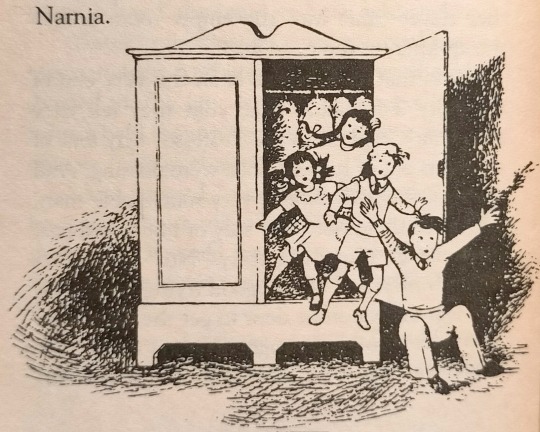
"The Chronicles of Narnia: The Lion, the Witch and the Wardrobe" - C. S. Lewis
#book quotes#the chronicles of narnia#the lion the witch and the wardrobe#c s lewis#pauline baynes#wardrobe#hunting gear#peter pevensie#susan pevensie#edmund pevensie#lucy pevensie#fit check
26 notes
·
View notes
Text

You've delighted us quite long enough. Give the other young ladies a chance to exhibit.
*airhorns* Get wreckt Mary.
#this is my favorite line in the novel#I use it all the time in real life#Edmund Gwen#Marsha Hunt#P&P40
6 notes
·
View notes
Photo
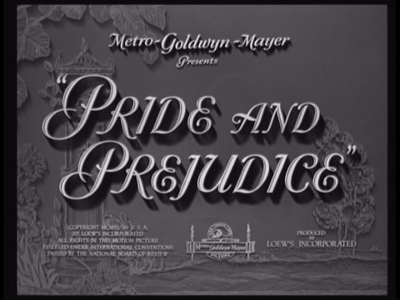
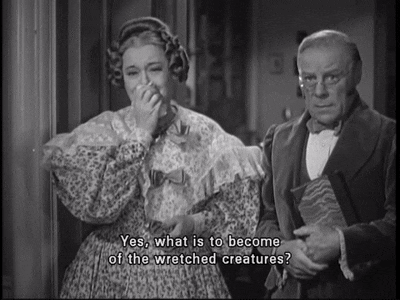


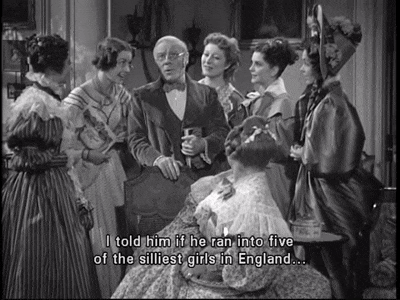
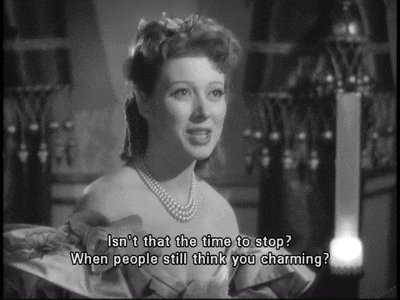

Pride and Prejudice (1940)
#Pride and Prejudice#1940#Robert Z. Leonard#Mary Boland#Edmund Gwenn#Greer Garson#Maureen O'Sullivan#Ann Rutherford#Heather Angel#Marsha Hunt#Edward Ashley Cooper#Laurence Olivier
5 notes
·
View notes
Text
Oooooh modern ghost hunting with Edmund!!!!! I think he would 100% be a skeptic but I am a believer, so we'd probably have like, a Ghoul Boys sort of dynamic
#edmund pevensie#narnia#fuck yeah edmund pevensie#king edmund#edmund the just#the chronicles of narnia#the pevensies#edmund#chronicles of narnia#modern Edmund#ghost hunting#buzzfeed unsolved#ryan and shane#ghoul boys
4 notes
·
View notes
Photo


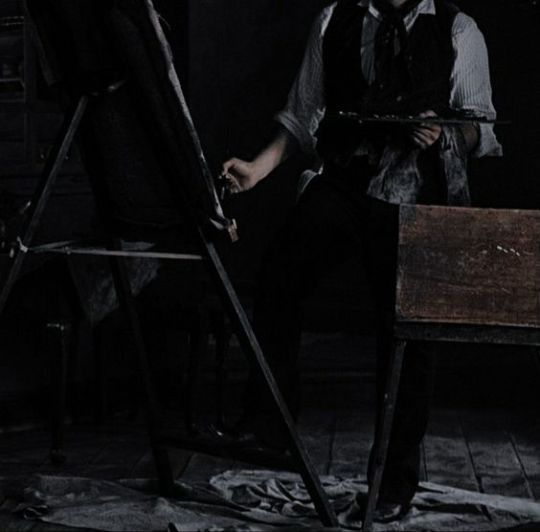

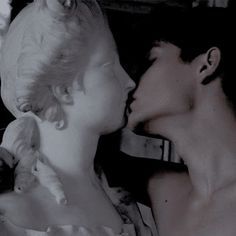

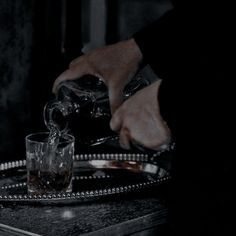


CHARACTER MOODBOARD / ABOUT → EDMUND HUNT
and there was edmund , the third son and forth child, the most melancholy of the bunch.
0 notes
Text
952 notes
·
View notes
Text






JSTOR Articles on the History of Witchcraft, Witch Trials, and Folk Magic Beliefs
This is a partial of of articles on these subjects that can be found in the JSTOR archives. This is not exhaustive - this is just the portion I've saved for my own studies (I've read and referenced about a third of them so far) and I encourage readers and researchers to do their own digging. I recommend the articles by Ronald Hutton, Owen Davies, Mary Beth Norton, Malcolm Gaskill, Michael D. Bailey, and Willem de Blecourt as a place to start.
If you don't have personal access to JSTOR, you may be able to access the archive through your local library, university, museum, or historical society.
Full text list of titles below the cut:
'Hatcht up in Villanie and Witchcraft': Historical, Fiction, and Fantastical Recuperations of the Witch Child, by Chloe Buckley
'I Would Have Eaten You Too': Werewolf Legends in the Flemish, Dutch and German Area, by Willem de Blecourt
'The Divels Special Instruments': Women and Witchcraft before the Great Witch-hunt, by Karen Jones and Michael Zell
'The Root is Hidden and the Material Uncertain': The Challenges of Prosecuting Witchcraft in Early Modern Venice, by Jonathan Seitz
'Your Wife Will Be Your Biggest Accuser': Reinforcing Codes of Manhood at New England Witch Trials, by Richard Godbeer
A Family Matter: The CAse of a Witch Family in an 18th-Century Volhynian Town, by Kateryna Dysa
A Note on the Survival of Popular Christian Magic, by Peter Rushton
A Note on the Witch-Familiar in Seventeenth Century England, by F.H. Amphlett Micklewright
African Ideas of Witchcraft, by E.G. Parrinder
Aprodisiacs, Charms, and Philtres, by Eleanor Long
Charmers and Charming in England and Wales from the Eighteenth to the Twentieth Century, by Owen Davies
Charming Witches: The 'Old Religion' and the Pendle Trial, by Diane Purkiss
Demonology and Medicine in the Sixteenth and Seventeenth Centuries, by Sona Rosa Burstein
Denver Tries A Witch, by Margaret M. Oyler
Devil's Stones and Midnight Rites: Megaliths, Folklore, and Contemporary Pagan Witchcraft, by Ethan Doyle White
Edmund Jones and the Pwcca'r Trwyn, by Adam N. Coward
Essex County Witchcraft, by Mary Beth Norton
From Sorcery to Witchcraft: Clerical Conceptions of Magic in the Later Middle Ages, by Michael D. Bailey
German Witchcraft, by C. Grant Loomis
Getting of Elves: Healing, Witchcraft and Fairies in the Scottish Witchcraft Trials, by Alaric Hall
Ghost and Witch in the Sixteenth and Seventeenth Centuries, by Gillian Bennett
Ghosts in Mirrors: Reflections of the Self, by Elizabeth Tucker
Healing Charms in Use in England and Wales 1700-1950, by Owen Davies
How Pagan Were Medieval English Peasants?, by Ronald Hutton
Invisible Men: The Historian and the Male Witch, by Lara Apps and Andrew Gow
Johannes Junius: Bamberg's Famous Male Witch, by Lara Apps and Andrew Gow
Knots and Knot Lore, by Cyrus L. Day
Learned Credulity in Gianfrancesco Pico's Strix, by Walter Stephens
Literally Unthinkable: Demonological Descriptions of Male Witches, by Lara Apps and Andrew Gow
Magical Beliefs and Practices in Old Bulgaria, by Louis Petroff
Maleficent Witchcraft in Britian since 1900, by Thomas Waters
Masculinity and Male Witches in Old and New England, 1593-1680, by E.J. Kent
Methodism, the Clergy, and the Popular Belief in Witchcraft and Magic, by Owen Davies
Modern Pagan Festivals: A Study in the Nature of Tradition, by Ronald Hutton
Monstrous Theories: Werewolves and the Abuse of History, by Willem de Blecourt
Neapolitan Witchcraft, by J.B. Andrews and James G. Frazer
New England's Other Witch-Hunt: The Hartford Witch-Hunt of the 1660s and Changing Patterns in Witchcraft Prosecution, by Walter Woodward
Newspapers and the Popular Belief in Witchcraft and Magic in the Modern Period, by Owen Davies
Occult Influence, Free Will, and Medical Authority in the Old Bailey, circa 1860-1910, by Karl Bell
Paganism and Polemic: The Debate over the Origins of Modern Pagan Witchcraft, by Ronald Hutton
Plants, Livestock Losses and Witchcraft Accusations in Tudor and Stuart England, by Sally Hickey
Polychronican: Witchcraft History and Children, interpreting England's Biggest Witch Trial, 1612, by Robert Poole
Publishing for the Masses: Early Modern English Witchcraft Pamphlets, by Carla Suhr
Rethinking with Demons: The Campaign against Superstition in Late Medieval and Early Modern Europe from a Cognitive Perspective, by Andrew Keitt
Seasonal Festivity in Late Medieval England, Some Further Reflections, by Ronald Hutton
Secondary Targets: Male Witches on Trial, by Lara Apps and Andrew Gow
Some Notes on Modern Somerset Witch-Lore, by R.L. Tongue
Some Notes on the History and Practice of Witchcraft in the Eastern Counties, by L.F. Newman
Some Seventeenth-Century Books of Magic, by K.M. Briggs
Stones and Spirits, by Jane P. Davidson and Christopher John Duffin
Superstitions, Magic, and Witchcraft, by Jeffrey R. Watt
The 1850s Prosecution of Gerasim Fedotov for Witchcraft, by Christine D. Worobec
The Catholic Salem: How the Devil Destroyed a Saint's Parish (Mattaincourt, 1627-31), by William Monter
The Celtic Tarot and the Secret Tradition: A Study in Modern Legend Making, by Juliette Wood
The Cult of Seely Wights in Scotland, by Julian Goodare
The Decline of Magic: Challenge and Response in Early Enlightenment England, by Michael Hunter
The Devil-Worshippers at the Prom: Rumor-Panic as Therapeutic Magic, by Bill Ellis
The Devil's Pact: Diabolic Writing and Oral Tradition, by Kimberly Ball
The Discovery of Witches: Matthew Hopkins' Defense of his Witch-hunting Methods, by Sheilagh Ilona O'Brien
The Disenchantment of Magic: Spells, Charms, and Superstition in Early European Witchcraft Literature, by Michael D. Bailey
The Epistemology of Sexual Trauma in Witches' Sabbaths, Satanic Ritual Abuse, and Alien Abduction Narratives, by Joseph Laycock
The European Witchcraft Debate and the Dutch Variant, by Marijke Gijswijt-Hofstra
The Flying Phallus and the Laughing Inquisitor: Penis Theft in the Malleus Maleficarum, by Moira Smith
The Framework for Scottish Witch-Hunting for the 1590s, by Julian Goodare
The Imposture of Witchcraft, by Rossell Hope Robbins
The Last Witch of England, by J.B. Kingsbury
The Late Lancashire Witches: The Girls Next Door, by Meg Pearson
The Malefic Unconscious: Gender, Genre, and History in Early Antebellum Witchcraft Narratives, by Lisa M. Vetere
The Mingling of Fairy and Witch Beliefs in Sixteenth and Seventeenth Century Scotland, by J.A. MacCulloch
The Nightmare Experience, Sleep Paralysis, and Witchcraft Accusations, by Owen Davies
The Pursuit of Reality: Recent Research into the History of Witchcraft, by Malcolm Gaskill
The Reception of Reginald Scot's Discovery of Witchcraft: Witchcraft, Magic, and Radical Religions, by S.F. Davies
The Role of Gender in Accusations of Witchcraft: The Case of Eastern Slovenia, by Mirjam Mencej
The Scottish Witchcraft Act, by Julian Goodare
The Werewolves of Livonia: Lycanthropy and Shape-Changing in Scholarly Texts, 1550-1720, by Stefan Donecker
The Wild Hunter and the Witches' Sabbath, by Ronald Hutton
The Winter Goddess: Percht, Holda, and Related Figures, by Lotta Motz
The Witch's Familiar and the Fairy in Early Modern England and Scotland, by Emma Wilby
The Witches of Canewdon, by Eric Maple
The Witches of Dengie, by Eric Maple
The Witches' Flying and the Spanish Inquisitors, or How to Explain Away the Impossible, by Gustav Henningsen
To Accommodate the Earthly Kingdom to Divine Will: Official and Nonconformist Definitions of Witchcraft in England, by Agustin Mendez
Unwitching: The Social and Magical Practice in Traditional European Communities, by Mirjam Mencej
Urbanization and the Decline of Witchcraft: An Examination of London, by Owen Davies
Weather, Prayer, and Magical Jugs, by Ralph Merrifield
Witchcraft and Evidence in Early Modern England, by Malcolm Gaskill
Witchcraft and Magic in the Elizabethan Drama by H.W. Herrington
Witchcraft and Magic in the Rochford Hundred, by Eric Maple
Witchcraft and Old Women in Early Modern Germany, by Alison Rowlands
Witchcraft and Sexual Knowledge in Early Modern England, by Julia M. Garrett
Witchcraft and Silence in Guillaume Cazaux's 'The Mass of Saint Secaire', by William G. Pooley
Witchcraft and the Early Modern Imagination, by Robin Briggs
Witchcraft and the Western Imagination by Lyndal Roper
Witchcraft Belief and Trals in Early Modern Ireland, by Andrew Sneddon
Witchcraft Deaths, by Mimi Clar
Witchcraft Fears and Psychosocial Factors in Disease, by Edward Bever
Witchcraft for Sale, by T.M. Pearce
Witchcraft in Denmark, by Gustav Henningsen
Witchcraft in Germany, by Taras Lukach
Witchcraft in Kilkenny, by T. Crofton Croker
Witchcraft in Anglo-American Colonies, by Mary Beth Norton
Witchcraft in the Central Balkans I: Characteristics of Witches, by T.P. Vukanovic
Witchcraft in the Central Balkans II: Protection Against Witches, by T.P. Vukanovic
Witchcraft Justice and Human Rights in Africa, Cases from Malawi, by Adam Ashforth
Witchcraft Magic and Spirits on the Border of Pennsylvania and West Virginia, by S.P. Bayard
Witchcraft Persecutions in the Post-Craze Era: The Case of Ann Izzard of Great Paxton, 1808, by Stephen A. Mitchell
Witchcraft Prosecutions and the Decline of Magic, by Edward Bever
Witchcraft, by Ray B. Browne
Witchcraft, Poison, Law, and Atlantic Slavery, by Diana Paton
Witchcraft, Politics, and Memory in Seventeeth-Century England, by Malcolm Gaskill
Witchcraft, Spirit Possession and Heresy, by Lucy Mair
Witchcraft, Women's Honour and Customary Law in Early Modern Wales, by Sally Parkin
Witches and Witchbusters, by Jacqueline Simpson
Witches, Cunning Folk, and Competition in Denmark, by Timothy R. Tangherlini
Witches' Herbs on Trial, by Michael Ostling
#witchcraft#witchblr#history#history of witchcraft#occult#witch trials#research#recommended reading#book recs#jstor
2K notes
·
View notes
Text
...No time hath she to sport and play:
A charmèd web she weaves alway.
A curse is on her, if she stay
Her weaving, either night or day,
To look down to Camelot.
She knows not what the curse may be;
Therefore she weaveth steadily,
Therefore no other care hath she,
The Lady of Shalott...

....But in her web she still delights
To weave the mirror's magic sights:
For often thro' the silent nights
A funeral, with plumes and lights
And music, came from Camelot.
Or, when the moon was overhead,
Came two young lovers, lately wed:
"I am half-sick of shadows," said
The Lady of Shalott.
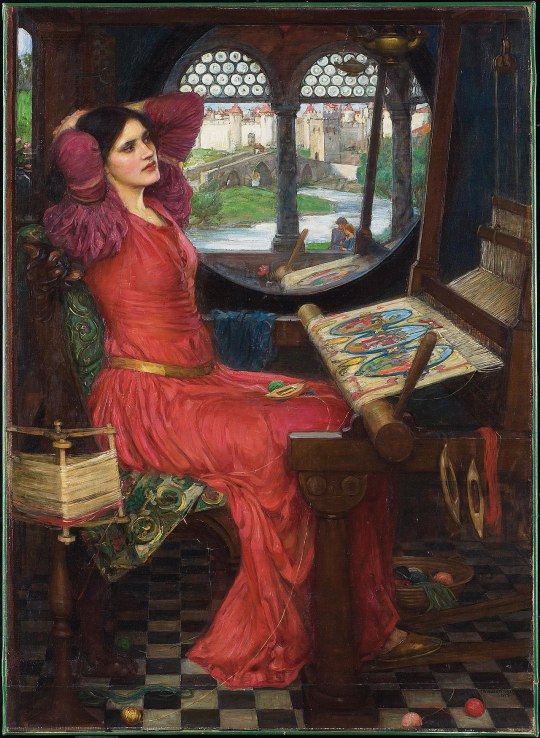
A bowshot from her bower-eaves.
He rode between the barley-sheaves:
The sun came dazzling thro' the leaves,
And flamed upon the brazen greaves
Of bold Sir Lancelot.
A redcross knight for ever kneeled
To a lady in his shield,
That sparkled on the yellow field,
Beside remote Shalott....
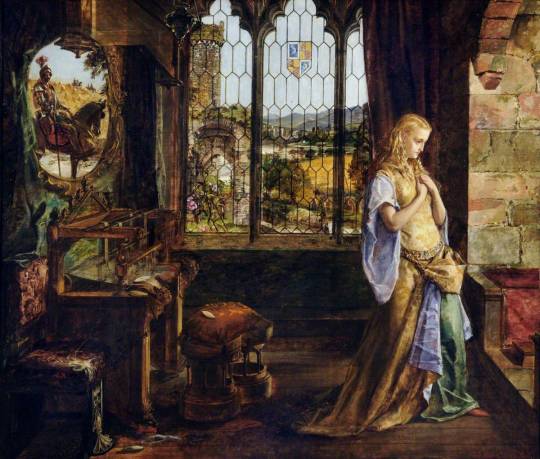
...She left the web: she left the loom:
She made three paces thro' the room:
She saw the waterflower bloom:
She saw the helmet and the plume:
She looked down to Camelot.
Out flew the web, and floated wide,
The mirror cracked from side to side,
"The curse is come upon me," cried
The Lady of Shalott.
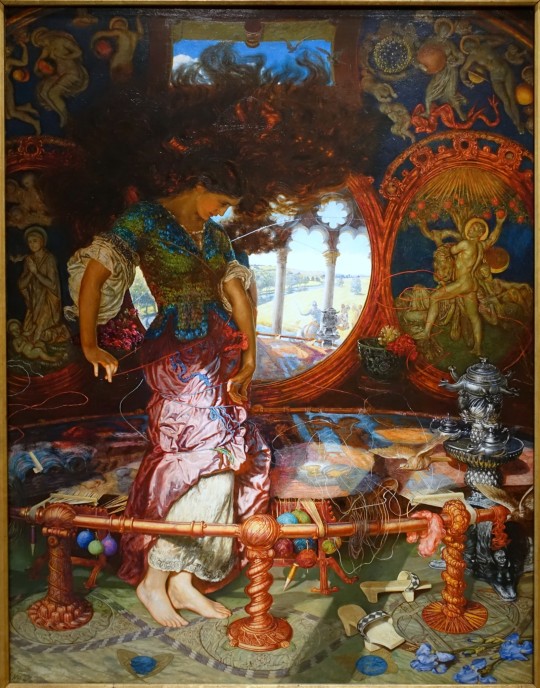
On either side the river lie
Long fields of barley and of rye,
That clothe the wold, and meet the sky.
And thro' the field the road runs by
To manytowered Camelot.
The yellowleavèd waterlily,
The green-sheathèd daffodilly,
Tremble in the water chilly,
Round about Shalott....
...With a steady, stony glance—
Like some bold seer in a trance,
Beholding all his own mischance,
Mute, with a glassy countenance—
She looked down to Camelot.
It was the closing of the day,
She loosed the chain, and down she lay,
The broad stream bore her far away,
The Lady of Shalott...
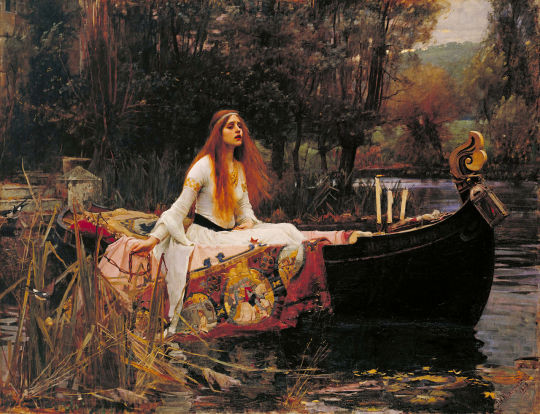
...Under tower and balcony,
By gardenwall and gallery,
A pale, pale corpse she floated by,
Deadcold, between the houses high,
Dead into towered Camelot.
Knight and burgher, lord and dame,
To the plankèd wharfage came:
Below the stern they read her name,
"The Lady of Shalott."...
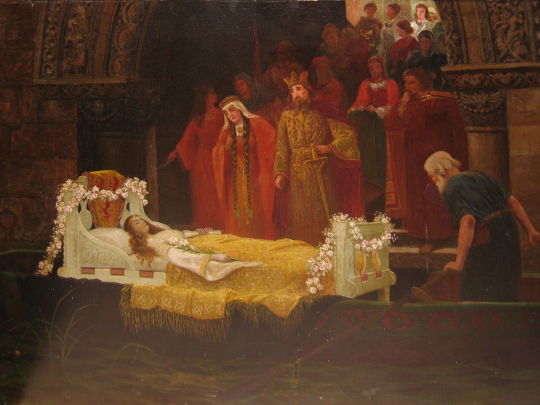
Text: Excerpts from "The Lady Of Shalott" by Alfred Tennyson, 1833
Images: Howard Pyle, 1881; John William Waterhouse, 1915; William Maw Egley, 1858; William Holman Hunt, c. 1905; John William Waterhouse, 1888; Edmund Blair Leighton, c. 1887
#I am having feelings again#I'd love to do a painting on this theme myself but I have not had much success painting people#arthurian legend#pre-raphaelites#it is about how it's safer to keep love at a distance than experience it yourself#but it can become unbearable#when knighthood was in flower
150 notes
·
View notes
Text
And he led them a great pace over rough and smooth and through thick and thin, till the horses of all the courtiers were tired out and only these four were still following.

"The Chronicles of Narnia: The Lion, the Witch and the Wardrobe" - C. S. Lewis
#book quotes#the chronicles of narnia#the lion the witch and the wardrobe#c s lewis#pauline baynes#white stag#hunting#horses#courtiers#tired#peter pevensie#susan pevensie#edmund pevensie#lucy pevensie
26 notes
·
View notes
Note
Hey if you don't mind me asking, what are you working on rn?
Why don't i show a few of them? :)
Autocorrect will stand for the weird things I will hopefully take care of when editing
dbs SS Normandie (project name) — all 5, male detective reader [releases 11th may]
“What are you going to do now?” you spit, cocking your head to the side. “Throw me overboard?”
“Not exactly”, Silas says, smiling menacingly.
“Not yet, at least”, Jerry says, grinning.
“If I don't meet my contact in New York, people will know that something has happened to me”, you say coldly. “They'll hunt you down.”
“Oh, will they now? I didn't realize that we had stolen their golden boy.” Silas's cruel smile widens. “Well, Golden Boy, plans seem to have changed.”
You glare at him in confusion. Silas pets your head twice and you hiss at the painful touch. Whatever they hit you with, it must have caused a gigantic bruise.
“Seems like we have to keep you for a while”, he says.
You glare at him.
“Do you really think ropes will stop me?” you ask. “I'll be out of here in no time.”
“I would very much like for you to see what we do to you if you decide to break free.”

(Have two smaller parts because the other teasers became longer)
Before pulling you up on your feet, she unties them. You stumble, almost falling on Jerry.
“Watch it, big boy”, she warns you. “If you knock me down I’m kicking you between your legs.”
“If you hadn’t tied my feet, I would actually have blood in them. I can’t feel them.”
She unties your hands. You make your way into the bathroom and catch a glimpse of yourself in the mirror. Hedwig had wiped away some of the blood, but there were still traces of it in your scalp. You sigh heavily. What should you do? Finally, your hands and feet are free, but you aren’t yet. And — after a quick look around — there’s no way out. The only way out is through the door which Jerry is guarding.
You could perhaps get out by defeating Jerry, but you have something against fighting women. But, then again, she had knocked you with — what you guess was — a glass bottle. You look around for something that can help you and lay your eyes on a metal bar over the bathtub, used to pull one up. Without a second thought and will all your might, you rip it off. You give it a few squeezes, feeling if it could be strong enough to be used as a weapon and trying to find a comfortable, yet strong, grip.
You open the door quickly and swing the metal bar towards Jerry. She tries to grab it out of your hands but you push her off and knock her to the ground with the bar. You're not sure how hard you are hitting her, but it's enough force to keep her down. Quickly, you make your way past her and storm out of the cabin, almost crashing into the opposite wall in the corridor. You look around quickly, trying to think of where to go. After what Silas said, that he has more men than just his second in command lurking around, you're not sure who you can be seen by.
Foreign queen (project name) — Edmund, female reader
You sit down on the bed with your head in your lap, waiting for something to happen. The castle makes sounds, as if it is trying to communicate … and for the moment it is the closest thing to comprehensible you can hear.
The door unlock again and you look up from your hands, only to be met by the king. He closes the door behind him. You freeze. He lets his eyes wander over you with a small smile.
“Beautiful”, he says.
“What do you want?” you whisper.
“You have a beautiful voice when you don’t yell or cry. Shame I don’t understand what you’re saying.”
He moves over to the bed, standing in front of you. You look up at him. He moves his hand slowly towards your face to move a piece of your hair out of your eyes. You sit frozen under his touch, too scared to move. The man points to himself.
“Edmund”, he says.
You recognise a name when you hear it.
“Edmund?” you whisper hesitantly.
He smiles and nods. Your accent makes his name feel new, personalized. It’s your name for him.
“Yes, Edmund, that’s right”, he says and points at you. “You?”
“Y/N …”, you whisper.
Edmund stands still for a moment before his smile widens. Hearing your name makes him feel euphoric.
“Y/N”, he says, tasting your name on his tongue. “Y/N.”
Edmund smiles.
Sick (project name) — hedwig, gender neutral reader
The chauffeur helps you up the stairs as you enter the georgian mansion. Your legs give up halfway and you almost crash into the stairs. The chauffeur grabs you quickly.
“Sorry”, you whisper.
“Don’t be”, he says.
He leaves you on Hedwig’s bed and asks if there is something he can get you. You shake your head. Even if you did need something, you still feel weird asking random people to get it for you. the few times you’ve done that, you’ve offered to pay but they’ve always turned it down. You’re not Hedwig, you aren’t used to having a dozen people do things for you. You have your own two hands and legs and are fully capable of doing things yourself.
“Should I get you some medicine?” the chauffeur asks. “I’m sure miss Hedwig would like it if I do.”
You give up, your head aching too much to discuss what you do or don’t need. You agree to him buying the medicine. As soon as he leaves, you change into your pajamas and tuck yourself in, hugging Hedwig’s teddy bear. Just as you’re about to fall asleep, there's a faint knock on the door. You pry your eyes open slightly to see the chef sneak in.
“What should I do for you?” he asks.
“Hedwig recommended soup”, you mumble.
“In that case I will make soup.”
He disappears again. You fall asleep within minutes and doesn’t notice when the chef comes in with steaming carrot soup, or when the chauffeur comes with the medicine. You first wake up when Hedwig leaves kisses over your face.
“I’m sorry for waking you, sweetheart”, she whispers apologetically, caressing your face. “But I got worried. You haven’t touched the soup or the medicine at all.” She feels your forehead softly. “Have you taken your temperature yet?”
“I have been sleeping”, you explain and cough loudly.
Hedwig furrows her brows worriedly and helps you sit up. She smiles as she sees you hugging her teddy. You cough again and she caresses your hair, looking as worried as if you'd have cut your arm off.
Like father, like son — Edmund + his son Ludwig, female reader
Edmund returns a few days later when everyone is asleep. Ludwig meets him in the hall and fixes his hair quickly.
“Welcome back, father”, he says.
“Has everything gone smoothly?” Edmund asks nonchalantly. “Has my wife done anything she shouldn’t?”
“She hasn’t!”
Edmund smiles. “That’s my girl. Well, where is she? Is she sleeping?”
“I believe so, father. She has been feeling a little … down … so …”
Edmund twirls around and gives him a stern gaze.
“What?” he asks coldly.
“I haven’t let her out of her room since the day you left. She has been forced to rest.”
Edmund practically runs to your shared chamber, wanting to get to you as quick as possible. He opens the door to find you sleeping in the bed. He sinks down on his knees in front of you and brushes the hair out of your face. You open your eyes slowly and he smiles.
“Hi, my jewel”, he whispers lovingly. “I’ve missed you so much.”
“Edmund”, you gasp, somehow happy that he’s back, that you don’t have to deal with Ludwig anymore.
He hugs you and brings your face into his neck. His arms sneak around your waist.
“Ludwig has been telling me that you’ve been feeling a little down”, he whispered into your hair. “What happened, my dear?”
“Nothing”, you replied. “It doesn’t matter.”
“It matters to me. Tell me.”
#yandere#yandere x reader#yandere x you#yandere imagines#yandere drabbles#yandere oc x you#yandere mafia#yandere oc x reader#yandere fics#yandere stories#yandere king#yandere doctor#yandere female#yandere rich girl#male reader#female reader#yandere teaser
119 notes
·
View notes
Text
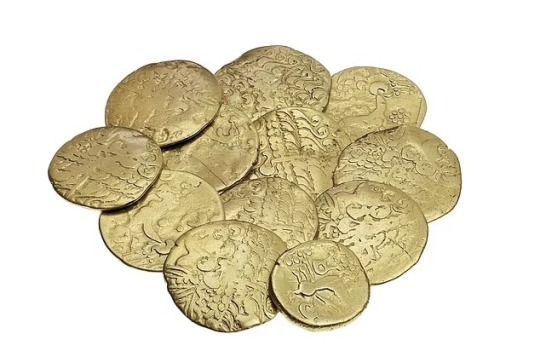
Britain's Oldest Gold Coin Hoard Discovered
The oldest hoard of gold coins in Britain, dating back 2,173 years, was discovered by a metal detectorist.
The 12 Iron Age artifacts were discovered by Stephen Eldridge while scouring fields in Buckinghamshire.
They were built in 150 BC by a tribe in what is now Picardy, France, according to experts at the British Museum.
According to speculation, the coins were likely transferred to Britain in return for Celtic mercenaries who were sent to Gaul in western Europe to fight the Romans.
A hoard from this date is extremely uncommon, even though individual gold coins from this era have been discovered before.
The coins will now likely sell for £30,000 when they are put up for auction at London's Spink & Son.
In November 2019, Mr. Eldridge, 68, discovered the coins in the Buckinghamshire community of Ashley Green.
The Catuvellauni tribe first settled in the region about 150 BC, and during the ensuing century they grew to become the most dominant tribe in Britain.
Mr. Eldridge has put the coins up for auction with London-based coin specialists Spink after going through the treasure process.
The coins' roughly 75% gold content with an alloy of silver and copper was validated by scientific x-ray fluorescence analysis, indicating the economy in which Britain's first gold coinage were circulating.
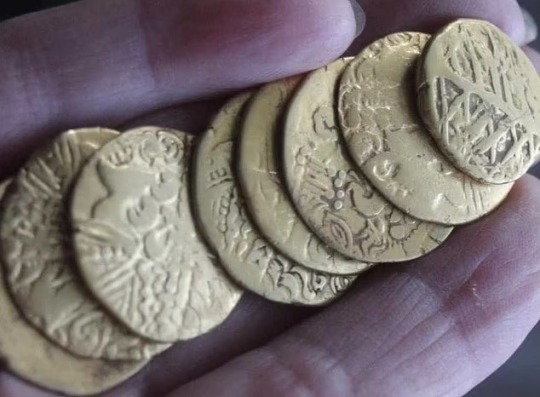
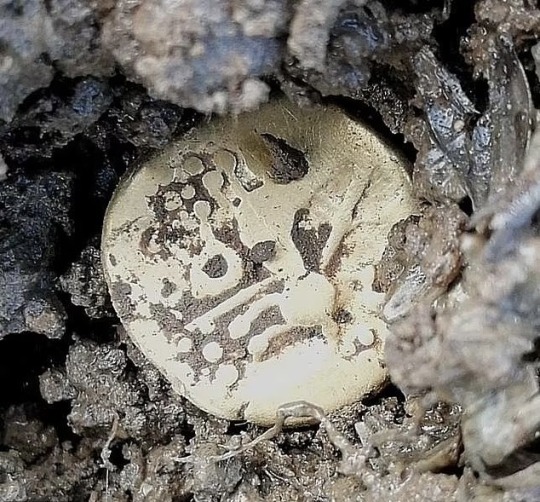

The coins are now expected to sell for £30,000 when they go under the hammer at London auctioneers Spink & Son
Gregory Edmund, of Spink & Son, said: “Whilst individual gold coins of this period have been recorded across south east England, it is incredibly rare for a trove of this size or date to be uncovered. Contemporary local coinage was simply cast base metal issues called 'potins'. Whoever successfully imported this trove of gold coins would have undoubtedly wielded influence in the region.
They would have been exported, probably in exchange for mercenaries, equipment and hunting dogs to fight the Romans or other tribes in Belgium. Twenty or thirty years after they were deposited we started to get the first British coins in the same style. These coins were in the wealthiest part of the English kingdom. A hoard of this size and period is unprecedented in the archaeological record. There was one other hoard from this period of three coins found. These coins have been well used, it is very clear they are not fresh when they are put in the ground, but still retain remarkable details of a seldom-seen Iron Age art form.
It is often speculated that the portraiture of this coinage was deliberately androgynous despite being modelled on the classical male god Apollo. The feminine styling is probably a reflection of the political significance of women in Iron Age society, that enabled such historical figures as Cartimandua and Boudicca to rise to prominence and our now national folklore. It is incredibly satisfying to assist in the proper recording, academic analysis and now sale of these prestigious prehistoric relics.”
Following the coroner's inquest, the British Museum made the decision to disclaim the coins, which means they now belong to the finder.
The landowner will receive a portion of Mr. Eldridge's earnings.
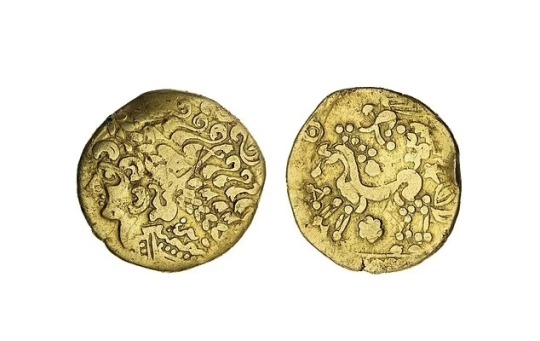
#Britain's Oldest Gold Coin Hoard Discovered#Buckinghamshire#The Catuvellauni tribe#treasure#gold#gold coins#ancient gold coiins#ancient artifacts#archeology#archeolgst#metal detecting#history#history news#ancient history#ancient culture#ancient civilizations#iron age
232 notes
·
View notes
Text
Narnia Headcanons
Queen Lucy the Valiant
Did not experience falling in love, and did not feel attracted enough to anybody to go for a casual relationship. She did pester Edmund about being in a relationship and drove him to madness— he already hated the number of suitors Susan had and thinking of people asking for Lucy made him fume even more. She took great amusement in riling him up with imaginary situations.
In Narnia, she was called Lucy the Lionheart, the Fanged Queen, the Merry Child, Queen Lucy the Healer, Lover of the People and more. She was known to be a happy person, always with a smile on her face, but also to be a lethal force in battle. She earned the name the Fanged Queen for her daggers— they were like a Lion's fangs in her skilled hands; fast, razor sharp and deadly.
Outside Narnia, she was known for her childlike smiles and her battle madness— the Child Queen, the Mad Queen, the Wild Child, Lucy the War Hungry, Bloody Lucy, the Merry Murderer and such terrifying titles. It was quite a shock for everyone who had heard her titles before meeting her, for she was nothing other than a little girl with the sweetest smile and the softest voice. Until, that is, the time for war came.
Peter's right hand when it came to battle strategy. Initially, it had been Edmund that had helped Peter, but as Lucy grew older they found she had a penchant for war, and Edmund immediately handed over the responsibilities to her to focus on the judiciary. People learnt very soon not to underestimate the 13 year old with dual daggers— she was as savage and deadly as a lion, and was not afraid to spill blood. Indeed, she was known to laugh as she killed on the battlefield.
Was the Spymaster of the espionage ring, and was extremely competent at it. She employed and trained unlikely creatures that would fly under the radar— Mice and Birds for their ability to appear dumb, Satyrs for their unassuming demeanor, Snakes for their stealth, and other small animals. It was the most successful spy organisation ever seen on the mainland.
Kept her hair short compared to the others. Went just below her shoulders, and had dozens of tiny braids following Peter's tradition. She braided white jasmines into her hair every morning for their smell, earning her the title the Crimson Jasmine after too many instances of the white flowers being drenched in her enemies' blood. When they fell out of Narnia, she had an impressive fifty-four braids— the highest out of all siblings.
Hated studying. Absolutely did not like to sit in one place poring over books for hours on end. She would rather be outside with the dryads and the satyrs, tracking the dumb animals through the forests on hunting expeditions.
Her favourite subjects were Strategy, Dancing lessons and Navigation— she was fond of sailing, and would usually accompany Edmund on his political journeys to the Islands and archipelagos. By the time she turned 16, she commanded her own fleet of warships, specifically to deal with the attacks on Narnian trade ships from pirates. She earned the title the Mad Queen for her daring and outrageous strategies to deal death on the sea.
Dancing with the Satyrs and the Dryads was her favourite passtime. If she was not on the sea and not in the archery range, she was in the forest, dancing around the fire in a circle. Her favourite dances were the Sword Dance and the fast paced Centaur's Canter.
Very often, she would assist Edmund with his ridiculous pranks. Equally often, she would blame him for her own pranks. Nobody other than the older pevensies ever believed that the sweet queen would ever prank anyone, which annoyed the three others to no end.
Playing Chess with Susan was also a treasured activity, for her. Often, the reason she came up with her outrageous battle strategies was that she had already thought of them when going up against Susan on the chessboard. Susan was a formidable opponent on the board and Lucy had to pull all the stops to defeat her. It helped when planning for actual war, and not to mention it was entertaining.
#narnia#the chronicles of narnia#amrut writes about narnia#edmund pevensie#lucy pevensie#peter pevensie#pevensie siblings#pevensies#susan pevensie#the pevensie siblings#lucy pevensie headcanons#narnia headcanons#chronicles of narnia
86 notes
·
View notes